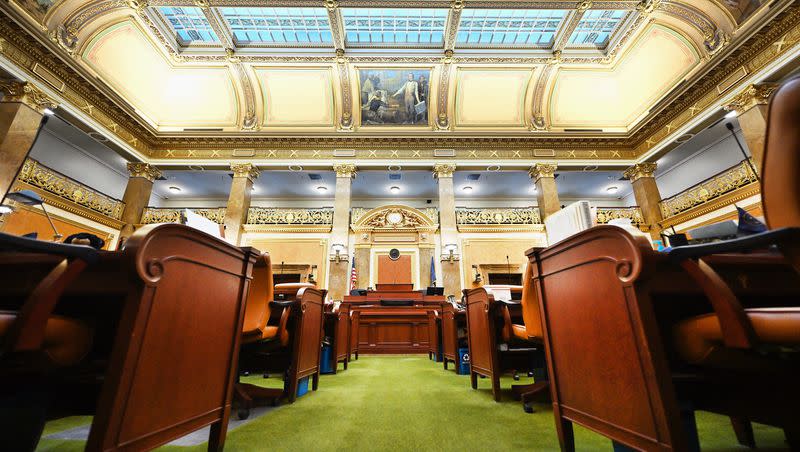Opinion: Utah’s Legislature is known for many things, but people should appreciate its fiscal management more

We have little doubt that average Utahns would come up with some colorful adjectives in a word-association test if given the prompt “Utah Legislature.”
Probably few of them would come up with the word “responsible,” however. And yet, the reason so much focus each year is given to odd or unusual bills, most of which never get written into law, is because the state has the big money issues under control.
Consider that our neighbors to the south, Arizona, are facing a two-year budget deficit approaching $1 billion. A year ago, it had a $1.8 billion surplus.
California has a $58 billion deficit, according to the state’s Legislative Analyst’s Office. The state has reserves to handle much of that, but the analysts say those deficits are expected to continue, and that will require painful decisions.
The situation in these states isn’t unique.
“Based on budget analyses states published in late 2023, roughly half of Americans live in states that report short-term budget gaps, potential long-term deficits, or both,” Pew Research Center said earlier this month, adding, “and this inventory almost certainly understates the scope of the problem because many states do not publish sufficient forward-looking data to meaningfully assess their fiscal outlook.”
Utah is required by the state constitution to pass a balanced budget each year. Lawmakers take that seriously.
As with virtually every state, Utah received its share of federal funding from the infrastructure bill that was signed in 2021. It also benefited from stimulus checks sent to individuals, which in turn were used to purchase items, resulting in greater sales tax receipts.
That pandemic-related boon is now fading away. Nationally, it led to inflation that has caused the Federal Reserve to raise interest rates, slowing economic growth.
Utah has felt this, as well. The latest forecast shows tax revenues are mostly flat from a year ago, and yet lawmakers aren’t wringing their hands. Utah has healthy rainy day funds. Pew said the state has kept those funds at current levels despite declining revenues. California, by contrast, has drawn down $28.5 billion of its reserves.
Despite their fiscal management, state lawmakers face some difficult issues during the session that will require much work and thought. This year so far has seen more than one bill that would end or significantly alter the state’s vote-by-mail election system. This, despite an internal audit that showed no evidence of fraud in Utah elections.
Utahns overwhelmingly prefer to vote by mail. A poll commissioned by the Deseret News and the Hinckley Institute of Politics right before the 2022 election found 68% saying they would vote by mail, with 89% saying they had confidence state and local officials would conduct a fair election. This is a classic case of not needing to fix something that isn’t broken.
The issue of diversity, equity and inclusion, or DEI, promises to be contentious as lawmakers consider ways to replace it as a hiring or teaching tool at institutions of higher learning with something that still ensures diversity and inclusion, but under a different name and definition.
Given how this has become a hot-button culture war issue, finding a resolution will be difficult.
Affordable housing is as difficult an issue as any affecting the state. Gov. Spencer Cox has proposed building 35,000 new starter homes within the next five years. But to make that happen, local city councils and planning commissions need to be on board. Often, that means making decisions that are politically unpopular.
Lawmakers also have expressed interest in enacting another modest income tax cut. We urge caution, considering declining state revenues. Utah voters will face a ballot measure in November asking them to eliminate the state’s portion of sales tax on groceries, a popular measure that would trim sales tax revenues by about $200 million.
Any further cuts should be made with the assurance that the state won’t be dipping into rainy day funds to make up the difference in coming years.
And yet, these and other issues couldn’t occupy so much of a scant 45-day session if Utah hadn’t already put its fiscal house in order. Utah’s high ranking among the best-managed states by a number of publications should not be taken for granted. U.S. News & World Report last year ranked the state No. 1, noting that it measured in the top 15 of eight categories, with a No. 1 ranking in economy and fiscal stability.
Despite the criticisms of some Utah lawmakers, it is important to pause at the start of another legislative session and recognize competent fiscal management — the kind from which Washington, and many states, as well, could learn lessons.

